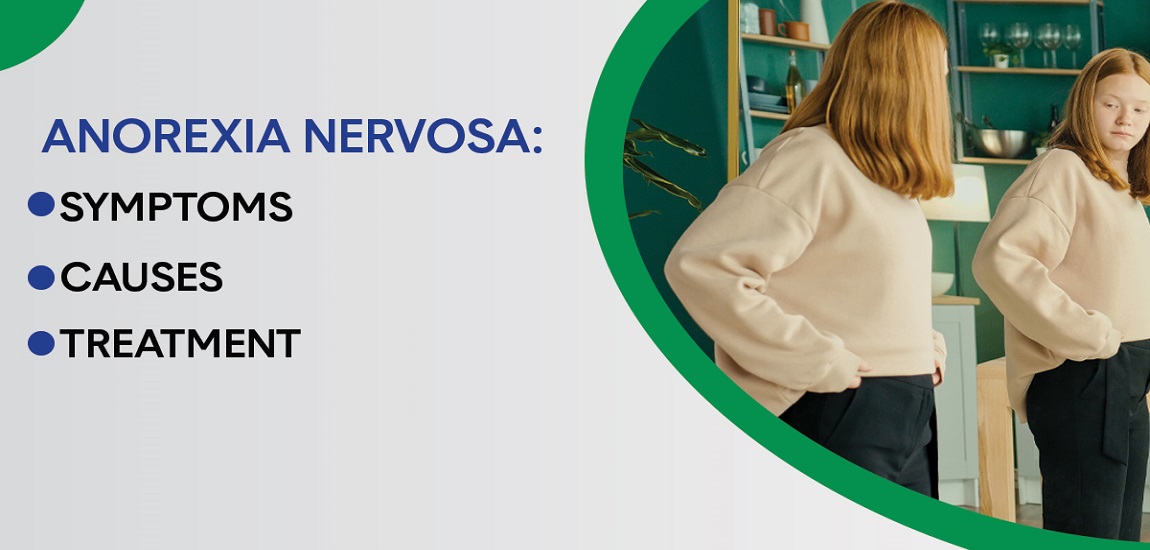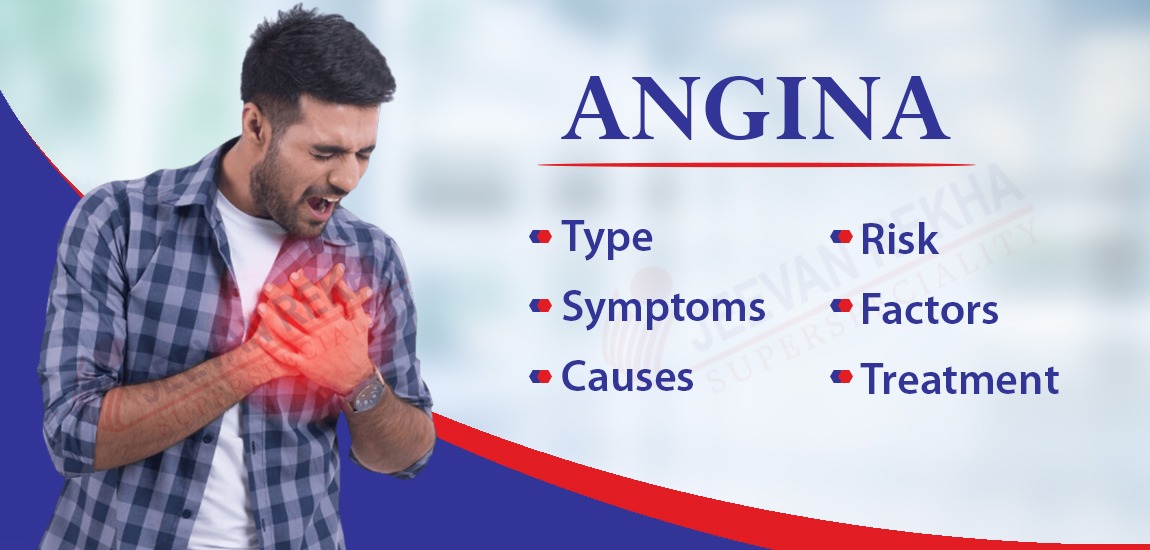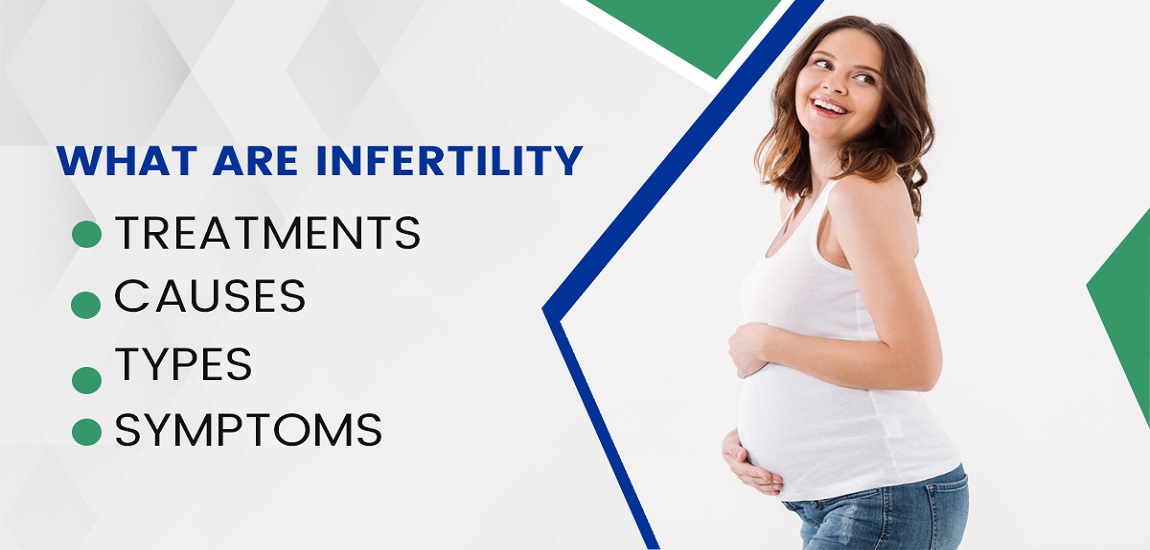
- By JRSH Admin
- In Health and Tips,
- Posted July 30, 2022
Anorexia Nervosa: Symptoms, Causes, and Treatments
What is Anorexia Nervosa?
The eating disorder is known as anorexia nervosa, or just "anorexia," which is characterised by unusually low body weight, a strong fear of gaining weight, and a skewed sense of weight. Anorexics put great emphasis on maintaining their weight and physical appearance, often by making excessive attempts that seriously disrupt their lives.
People with anorexia typically severely restrict their food intake to avoid gaining weight or to keep losing weight. By making themselves throw up after eating, or by abusing laxatives, diet supplements, diuretics, or enemas, They can reduce their calorie intake. They might also make an effort to lose weight by overexerting themselves. No matter how much weight is removed, the person's anxiety about weight gain never goes away.
Food isn't a factor in anorexia. To attempt to deal with emotional issues in this way is exceedingly unhealthy and occasionally fatal. When you have anorexia, you frequently confuse being thin with being valuable.
Like other eating disorders, anorexia may control your life and be very challenging to recover from. But with treatment, you can rediscover your identity, adopt healthier eating practices, and undo some of anorexia's severe side effects.
- Restricting type
People who have this form of anorexia nervosa severely limit the amount and kind of food they eat.
This could entail calorie tracking, skipping meals, restricting particular foods (like carbohydrates), and adhering to compulsive restrictions like only consuming foods of a particular colour.
Excessive exercise may go along with these behaviours.
- Binge eating/purging type
The amount of food that those with this type of anorexia consume is likewise severely restricted. However, this is followed by bingeing and then purging.
When someone binges, they eat a lot of food and have feelings of being out of control. The person then "makes up" for this overeating by abusing laxatives, diuretics, or enemas, or by vomiting the food out.
Symptoms of Anorexia Nervosa
The disorder of anorexia nervosa is complicated. Significant weight loss or low body weight are the key indicators. Even after experiencing significant weight loss, a person with atypical anorexia nervosa may still be of average weight.
Other physical symptoms and indicators associated with nutritional deficiency include:
- severe loss of muscle mass
- listlessness, fatigue, or exhaustion
- low blood pressure
- lightheadedness or dizziness
- body temperature that is low with freezing hands and feet, or perhaps hypothermia
- bloated or upset stomach
- dry skin
- swollen hands and feet
- hair loss
- loss of menstruation or less frequent periods
- infertility
- insomnia
- bone density reduction raises the possibility of fractures
- brittle nails
- constipation
- irregular or abnormal heart rhythms
- lanugo, which is body hair that is fine and downy.
- increased facial hair
- A frequent vomitor has bad breath and decayed teeth
The person may also demonstrate certain behaviours, such as:
- Reducing their total calorie intake or the variety of meals they eat
- Exhibiting an excessive concern about food, calories, physical size, dieting, and weight
- Exercise frequently, use laxatives, or induce vomiting
- Assessing their body weight and size frequently
- Talking about being “fat” or having overweight
- Denying feeling hungry or avoiding mealtimes
- Establishing eating rituals, such as eating certain dishes in a certain order
- Cooking for others without eating
- Withdrawing from friends and social interaction
- Showing signs of depression
The individual could link eating and eating with guilt. They could act as though nothing is wrong or refuse to admit they have eating-related problems.
Causes of Anoreixa Nervosa:
All eating disorders, including anorexia, are difficult to treat. As a result, the precise origin of anorexia is unknown, but research points to a potential interaction between several genetic, psychological, and environmental factors, particularly sociocultural influences.
The following factors could play a role in the development of anorexia:
- Genetics: According to research, between 50% and 80% of the chance of developing an eating disorder is genetic. Ten times as likely to have an eating disorder are people who have first-degree relatives (siblings or parents) who have one, which may indicate a genetic connection. Changes in brain chemistry, particularly those affecting the reward system and neurotransmitters like serotonin and dopamine that can alter mood, hunger, and impulse control, may potentially be at play.
- Trauma: Many professionals think that patients who struggle with eating disorders, such as anorexia, do so because they are trying to manage their intense emotions and overwhelming feelings. Some people may be more susceptible to developing an eating disorder if they have experienced physical or sexual abuse, for instance.
- Environment and culture: Cultures that idealise a specific body type, typically "slim" bodies, might put undue pressure on individuals to meet unattainable body standards. Thinness is frequently associated with popularity, success, beauty, and happiness in popular culture and media and advertising representations. This can encourage someone to develop anorexia.
- Peer pressure: Peer pressure, especially for kids and teenagers, maybe a very potent influence. Anorexia can develop as a result of being the target of taunts, bullying, or ridicule due to appearance or weight.
- Emotional health: Perfectionism, impulsive behaviour, and challenging relationships can all contribute to a person's low sense of self-worth. They may be more susceptible to developing anorexia as a result.
It's crucial to remember that there are many different ways to develop an eating disorder or anorexia. Unusual eating habits, often known as "disordered eating," are often an ineffective coping mechanism that, over time, take on a life of their own. Some people who develop anorexia follow this route to disordered eating, but not all of them.
Risk factors for anorexia nervosa:
Anorexics are more likely to come from families where certain illnesses run in the family. These include issues with weight, physical ailment, and mental health. Substance abuse and sadness can both be symptoms of mental health issues.
Additional factors that could affect anorexia include:
- Social attitudes
- Family influences
- Genetics
- Brain chemical imbalances
- Developmental issues
If you participate in particular sports and activities that emphasise body type and size, you may also be at risk. These consist of:
- Ballet
- Bodybuilding
- Cheerleading
- Figure skating
- Gymnastics
- Jockeying
- Modelling
- Wrestling
Diagnosis of Anorexia Nervosa:
Based on the criteria for anorexia nervosa provided in the Diagnostic and Statistical Manual of Mental Disorders (DSM-5) published by the American Psychiatric Association, a healthcare professional can determine whether a patient has the disorder. According to the DSM-5, anorexia nervosa meets three criteria.
- Depending on the person's age, sex, height, and stage of growth, calorie restriction causes weight loss or a failure to gain weight, culminating in very low body weight.
- Extreme anxiety over putting on weight or getting "fat."
- Having a false perception of their situation and themselves. In other words, the person cannot accurately judge their body weight and form and believes that their look greatly affects their sense of worth. In addition, they deny the serious medical implications of their current low body weight and/or dietary restriction.
A person can have a serious eating disorder even if they don't meet all of the DSM-5 criteria for anorexia. Body mass index determines how severe anorexia is according to DSM-5 criteria (BMI). Atypical anorexia is a condition in which a person meets the criteria for anorexia but is not underweight despite having lost a large amount of weight.
Healthcare professionals can use the DSM-5 diagnostic standards to identify a patient's current level of severity and evaluate whether they are in complete or partial remission (recovery) based on body mass index (BMI).
If anorexia symptoms and indicators are present, a healthcare practitioner will begin an evaluation by doing a complete medical history and physical examination. The provider or a mental health specialist might inquire about the following:
- Dietary history (attitudes about food, dietary restriction).
- Exercise history.
- Psychological history.
- a body image (this includes behaviours such as how often you weigh yourself).
- Frequency and elimination routines for bingeing and purging (use of diet pills, laxatives and supplements).
- Family history of eating disorders.
- Period status (if your periods are regular or irregular).
- Medication history.
- Prior treatment.
It's crucial to keep in mind that an individual with anorexia or any other eating disorder will recover most effectively if they receive an early diagnosis. Make sure to speak with a healthcare professional as soon as you can if you or someone you know is exhibiting anorexia-related signs and symptoms.
Tests for diagnosing Anorexia Nervosa:
A healthcare professional may use different diagnostic tests, such as blood tests, to rule out any medical conditions that could cause weight loss and to assess the potential physical harm that weight loss and starvation may have caused, even though there are no laboratory tests specifically designed to diagnose anorexia.
Tests to rule out illnesses caused by weight loss or to evaluate the side effects of anorexia may include:
- Complete blood count to assess overall health.
- A blood test for electrolytes to screen for dehydration and the acid-base balance in your blood.
- Check for nutritional deficiencies and liver health using an albumin blood test.
- Electrocardiogram (EKG) to check heart health.
- A urine test to look for a variety of ailments.
- Bone density analysis to detect weak bones (osteoporosis).
- Kidney function tests.
- Liver function tests.
- Thyroid function tests.
- Vitamin D levels.
- A pregnancy test for those of childbearing age who were born females.
- Hormone testing is performed if there is an indication of menstrual issues in people assigned female at birth (to rule out other causes).
Treatment for Anorexia Nervosa:
Getting the patient back to a healthy weight, resolving mental problems including poor self-esteem, changing faulty thought patterns, and creating long-lasting behavioural changes are some of the objectives of treatment. The following therapy approaches are typically combined in treatment:
- Psychotherapy: Individual counselling of this kind concentrates on altering an eating disorder sufferer's thoughts (cognitive therapy) and behaviours (behavioural therapy). The course of treatment includes strategies for modifying how the patient reacts to challenging circumstances as well as doable methods for fostering good attitudes around food and weight.
- Acceptance and commitment therapy: Instead of changing your ideas and feelings, this therapy aims to increase your drive to modify your behaviour.
- Cognitive behavioural therapy (CBT): With the help of behaviour modification (if "X" occurs, I can do "Y" instead of "Z"), this therapy aims to address incorrect beliefs and attitudes regarding weight, shape, and appearance.
- Cognitive remediation therapy: Reflection and supervised supervision are used in this therapy to help patients learn to focus on multiple things at once.
- Dialectical behaviour therapy (DBT): With the help of this therapy, you can not only learn new coping mechanisms for dealing with stressful events, but you can also get insight into the circumstances that might lead to unhelpful behaviours. Building mindfulness, enhancing relationships through interpersonal effectiveness, controlling emotions, and tolerating stress are examples of specific talents.
- Family-based therapy (also called the Maudsley Method): This incorporates family-based refeeding, which implies entrusting the parents and family with ensuring the anorexic individual receives the proper nutritional intake. It is the best scientifically supported strategy for helping a person with anorexia who is under 18 years old to regain their physiological health.
- Interpersonal psychotherapy: This therapy aims to deal with a societal issue. Lessening eating disorder symptoms can be achieved by resolving recognised problems, fostering positive connections, and boosting communication.
- Psychodynamic psychotherapy: To recover from anorexia, this therapy focuses on its underlying causes.
- Medication: Anxiety and depression related to an eating problem may be managed with the aid of specific antidepressant drugs, such as selective serotonin reuptake inhibitors (SSRIs). Some antidepressants may also promote appetite and sleep. To reduce anxiety and/or correct misguided beliefs about food and body image, other kinds of drugs might also be prescribed.
- Nutrition counselling: This plan aims to re-establish normal eating patterns, instil a healthy perspective on food and weight management, and stress the value of eating a balanced diet and good nutrients.
- Group and/or family therapy: Family support is crucial for the effectiveness of treatment. Family members need to be aware of the eating disorder and its warning indications. Group therapy may be helpful for those with eating disorders because it allows them to openly address their feelings and worries with others who have similar issues and experiences.
- Hospitalization: As previously indicated, treatment for extreme weight loss that has led to starvation and other major mental or physical health issues, like heart conditions, severe depression, and the risk of suicide, may need hospitalisation. The patient can occasionally require nourishment through an IV or a feeding tube.
What Is the Outlook for People With Anorexia?
The anorexia recovery rate is high. However, a small portion of people doesn't. The disorder might be fatal in some people. Others, though, might later acquire new eating disorders. Some people require lifelong maintenance and treatment to recover from anorexia. Your chances of recovering from anorexia can be increased by joining a support group.
Can Anorexia Nervosa Be Prevented?
Anorexia nervosa cannot be completely avoided. Primary care doctors (internists, family physicians, and paediatricians) may be well-positioned to spot anorexia's early warning signs and stop the condition from progressing to a more serious stage. For instance, during routine medical appointments, they can inquire about dietary habits and contentment with appearance.
Consider talking to a family member or acquaintance about these concerns if you see that they have poor self-esteem, strict eating habits, or dissatisfaction with their looks. Even while you might not be able to stop an eating disorder from emerging, you can talk to someone about healthy habits or available treatments.
Tags
Blog Search
Latest Posts
-
Dark Circles Under The Eyes: Causes, Home Remedies and Treatments
December 21, 2025 -
बर्ड फ्लू के लक्षण, कारण, उपचार और बचाव के उपाय जानें
December 04, 2025 -
Best Diet Plan for Menopause Weight Management
November 25, 2025 -
Pulmonary Fibrosis Treatment: Understanding Lung Scarring and Breathing Problems
November 21, 2025 -
Arrhythmia: Types, Causes, Symptoms, and Treatment
November 07, 2025




